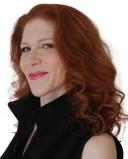Placebo
Believing Acupuncture Works Doesn’t Mean It Actually Does
Acupuncture is alluring pseudoscience.
Posted March 26, 2021
Key points
- Human cognitive biases tempt us to believe in acupuncture, despite the lack of scientific evidence that it works.
- Our need for “self-justifiction” leads us to ignore any opposing facts that suggest we're wasting time and money.
- Acupuncture seems to be a “theatrical placebo,” having only psychological effects.
- Acupuncture is no better than a toothpick for treating back pain.
People who go to acupuncturists—spending a lot of money and time—are invested in believing it works, in large part because they invested all that money and time.

We like to think of ourselves as smart and prudent—qualities in sharp opposition to our throwing money into the wind like chimps. And as psychologist Eliot Aronson showed, in keeping with our need for “self-justification”—to mop up the “cognitive dissonance” between our ill-advised behavior and our high opinions of ourselves—we simply ignore any unseemly facts that might get in the way.
Acupuncture involves sticking patients with tiny needles along bodily “meridians” with the goal of alleviating various physical and emotional conditions. Many people swear by it as a supposedly medical cure: that is, one that leads to physiological healing.
However, upon reviewing a body of research on acupuncture, two pseudoscience debunkers, pharmacologist David Colquhoun and neurologist Steven Novella, deem it a “theatrical placebo” and “a voluntary self-imposed tax on the gullible.” (A placebo is a drug that has only a psychological benefit—and no physiological effect.)
Their take is in sharp contrast with the opinion of many about acupuncture. In fact, even cancer surgeon David Gorski, a longtime science blogger and medical myth-buster, admitted that he once thought there might be something to acupuncture—perhaps “some physiologic mechanism at work behind acupuncture that produced real benefits in terms of pain relief above that of placebo.”
And then he dug into the scientific literature. He saw that not just some but much of it is methodologically flawed. He writes, “The vast majority of research into acupuncture is shoddy in the extreme, with methodological problems that greatly increase the probability of false-positive trials.”
By the way, when acupuncture practitioners insist that it works, these shoddy studies are the ones they wave at us to back up their claims. (These practitioners aren’t necessarily dishonest; in fact, they probably aren’t. There’s a good chance they have no idea about how to vet scientific methodology and that they believe they’re doing good for their patients.)
Colquhoun and Novella looked at a review of 13 studies—with a total of 3,025 patients—in which acupuncture was used to treat a number of painful conditions. In one arm of the review, patients who had acupuncture were compared with those who’d had none. OK, so there was a small decrease in the pain of patients who’d had acupuncture—but nothing noteworthy. On a 100-point pain scale, patients reported only a 10-point decrease in their pain level.
Now, maybe you’re thinking, “C’mon, 10-point decrease; that’s something.”
Actually, it’s not. And here’s why: These studies lacked what’s called “blinding,” meaning both the patients and the practitioners knew who was getting acupuncture and who was not. So, as Colquhoun and Novella put it: “It is not possible to say whether the observed difference is a real physiological action or whether it is a placebo effect.” In other words, maybe those 10 points were just a psychological effect in people who knew they’d gotten an intervention that they thought would help them ease their pain.
There’s a good deal of research that finds placebo treatments work—but finding a psychological effect doesn’t mean the little needles that got stuck into people themselves had any particular effect. The researchers could have told people that bouncing tennis balls off a specific place on the side of their heads cures headaches, and some or maybe many would probably likewise report some decrease in their pain—again, a psychological effect, not a sign that speeding tennis balls are a cure for the throbbing brain.
In another paper surveying the research on acupuncture—reviewing 29 randomized controlled trials, with 17,922 patients—real acupuncture was compared with sham acupuncture (acupuncture without the “puncture,” or with needles inserted in “wrong” places on the body). Colquhoun and Novella note that the results in this 29-paper analysis were “very similar” to those in the 13-study review: “Real acupuncture was better than sham but by a tiny amount that lacked any clinical significance.”
Colquhoun and Novella also caution that the belief that acupuncture works comes out of a body of research “contaminated by variables other than acupuncture, such as the frequent inclusion of 'electroacupuncture,' which is essentially transdermal electrical nerve stimulation masquerading as acupuncture.”
“Acupuncture should, ideally, be tested separately for effectiveness for each individual condition for which it has been proposed,” Colquhoun and Novella write. Results from research that has been done “suggest strongly that it is unlikely that acupuncture works for rheumatoid arthritis, stopping smoking, irritable bowel syndrome, or for losing weight.” There is likewise “no good reason to think it works for addictions, asthma, chronic pain, depression, insomnia, neck pain, shoulder pain or frozen shoulder, osteoarthritis of the knee, sciatica, stroke or tinnitus, and many other conditions.”
In fact, though the Oxford Centre for Evidence-Based Medicine happened to be focusing on acupuncture for back pain, it seems likely that their assessment applies to all sorts of other conditions:
“Clinical bottom line. Acupuncture is no better than a toothpick for treating back pain.”
Of course, on a simple price comparison level, toothpicks win—as you can get one for free on the way out of your favorite Chinese restaurant and then ask somebody at the bus stop to give you a few pricks in the back with it before you return to work.
References
Tavris, Carol, and Elliot Aronson. Mistakes were made (but not by me): Why we justify foolish beliefs, bad decisions, and hurtful acts. Houghton Mifflin Harcourt, 2020.
Colquhoun, David, and Steven P. Novella. "Acupuncture is theatrical placebo." Anesthesia & Analgesia 116, no. 6 (2013): 1360-1363.
Gorski, David. “Sham acupuncture is better than ‘true’ acupuncture!” RespectfulInsolence.com, (2008).




